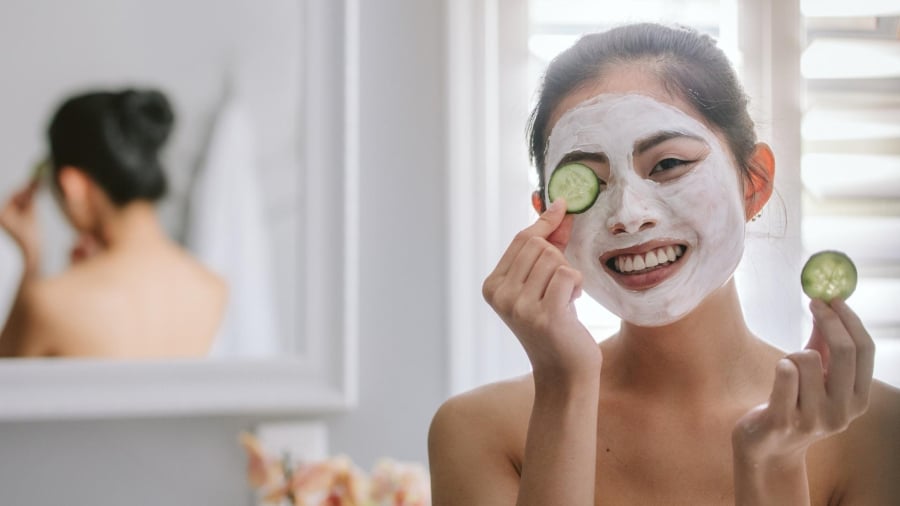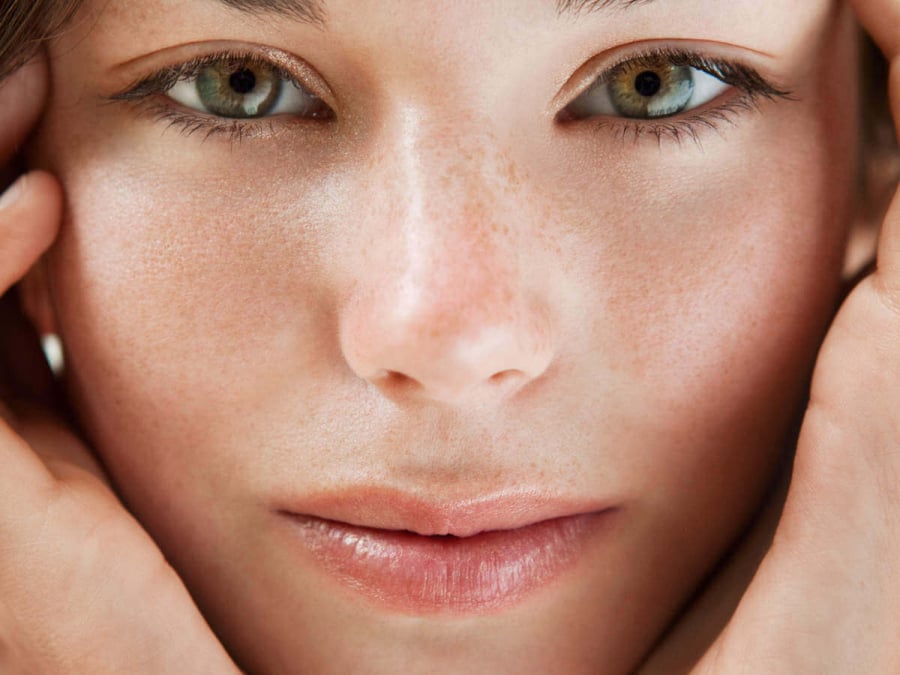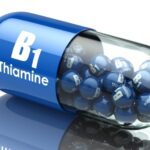Large pores can be improved with a dedicated skincare routine. However, it’s important to identify the cause to use the right products.
**Genetics:**
If you’ve had large pores since childhood and your family members share this trait, it’s likely genetic. People in tropical, humid regions tend to have larger pores compared to those in colder climates. This trait is more common in men, while women may experience temporary enlargement during menstruation due to hormonal changes.

Large pores can be a genetic trait passed down through families.
**Poor Skin Cleansing:**
Excess oil, dirt, and dead skin cells that aren’t removed regularly and properly can lead to blockages and inflammation, resulting in enlarged pores. This is common in oily skin types and during puberty, pregnancy, or hormonal imbalances.
A double-cleansing routine (using a makeup remover and a gentle cleanser) and exfoliating twice a week are recommended.
**Dehydrated Skin:**
Excess sebum production can lead to blockages and enlarged pores. When the skin is dehydrated, it means the cells are lacking moisture. Dehydrated cells shrink, and when many cells shrink together, pores become more noticeable.
Use products containing hyaluronic acid and glycerin, which hydrate and plump up the skin.

Excess sebum production contributes to blocked and enlarged pores.
**Aging:**
As we age, the skin loses its firmness due to a decrease in collagen and elastin, causing facial muscles to loosen and pull the skin downward, which can stretch pores.
Ensure adequate collagen and elastin production by consuming a nutritious diet and using anti-aging or retinol products to stimulate cell renewal. Protect your skin from UV rays, pollution, and extreme temperatures to prevent accelerated aging.
The 5 Unforeseen Dangers of Improper Makeup Application
The chemicals in cosmetics, when in frequent contact with the skin, can cause irritation, inflammation, and even damage to the skin’s natural protective barrier. This is a growing concern for many consumers who are now seeking natural and organic alternatives. With a plethora of natural ingredients available, there is a growing trend towards formulating cosmetics with botanical extracts and natural oils that nourish and protect the skin, offering a safer and healthier alternative to traditional cosmetics.
The 3 Style Mistakes That Age You More Than Gaining Weight
Aging is inevitable, but some factors can accelerate the process, making you look older than your years. While wrinkles, gray hair, and weight gain are commonly associated with aging, three other traits can age you faster than anything else. It’s time to uncover the secrets to looking and feeling youthful.
The Ultimate Guide to Caring for Delicate Under-Eye Skin and Erasing Signs of Aging
The delicate skin around the eyes is a window to the soul, and it deserves the utmost care and attention. This sensitive area requires a gentle touch and a tailored approach to ensure it remains healthy and radiant. With the right techniques and products, you can transform this fragile canvas, enhancing your natural beauty and ensuring your eyes remain the focal point.





































